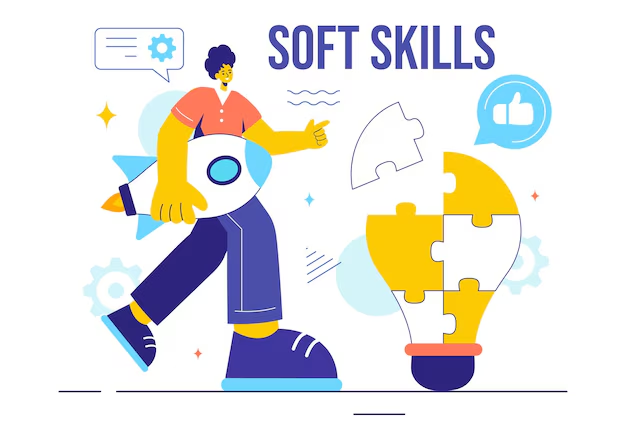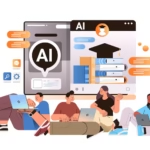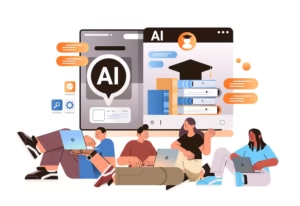Importance of Soft Skills: Introduction

In today’s rapidly evolving job market, technical skills alone are not enough for career success. Employers increasingly value soft skills, which include interpersonal and communication abilities, as they are essential for a well-rounded and effective workforce. This blog explores the significance of soft skills in the modern workplace and provides insights into how students and professionals can develop these vital attributes.
Table of Contents
What Are Soft Skills?

Soft skills refer to personal attributes that enable individuals to interact effectively and harmoniously with others. These skills are not specific to any particular job but are universally applicable across various professions and industries. Key soft skills include:
- Emotional intelligence
- Communication
- Teamwork
- Problem-solving
- Time management
- Adaptability
- Leadership
Why Soft Skills Matter
Enhanced Communication and Collaboration
- Effective communication: Clear and concise communication reduces misunderstandings and fosters a collaborative environment. Being able to articulate thoughts and ideas effectively ensures that everyone is on the same page, leading to smoother and more efficient operations.
- Teamwork: The ability to work well in a team is crucial for achieving common goals and maintaining a positive work atmosphere. Collaboration and cooperation among team members lead to better problem-solving and innovation.
Increased Productivity and Efficiency
- Problem-solving: Quickly identifying and addressing issues improves workflow and productivity. Employees with strong problem-solving skills can navigate challenges and obstacles, ensuring that projects stay on track.
- Time management: Efficiently managing time ensures deadlines are met and work quality is maintained. Good time management skills allow employees to prioritize tasks effectively, reducing stress and increasing overall efficiency.
Better Leadership and Management
- Leadership: Inspiring and motivating team members leads to higher morale and better performance. Strong leadership skills help create a vision for the team and guide them towards achieving their goals, fostering a sense of purpose and direction.
- Emotional intelligence: Understanding and managing one’s emotions, as well as those of others, enhances leadership effectiveness and workplace relationships. High emotional intelligence enables leaders to handle conflicts, provide constructive feedback, and build strong, trusting relationships with their team members.
Adaptability in a Changing Environment
- Adaptability: The ability to adjust to new challenges and changes ensures long-term success in a dynamic work environment. Adaptable employees can pivot when necessary, embrace new technologies, and remain productive even in the face of uncertainty. This flexibility is crucial for maintaining competitiveness and driving continuous improvement.
Developing Soft Skills

Cultivating soft skills is a continuous process that requires deliberate practice and engagement. Here are some strategies to develop these essential skills:
Practice Active Listening
- Focus on understanding: Truly understanding what others are saying without interrupting is key to effective communication. Active listening involves paying full attention to the speaker, understanding their message, and responding thoughtfully.
- Reflect back: Paraphrase and reflect back what you hear to ensure comprehension. This not only confirms your understanding but also shows the speaker that you value their input.
Engage in Team Activities
- Join clubs and teams: Engaging in clubs, sports teams, or professional organizations allows you to work closely with others, fostering teamwork and collaboration skills.
- Participate in group projects: Group projects, whether in academic or professional settings, help develop your ability to collaborate, delegate tasks, and manage group dynamics.
Seek Feedback
- Ask for feedback: Regularly seek feedback on your interpersonal skills from colleagues, mentors, and supervisors. Constructive criticism provides valuable insights into your strengths and areas for improvement.
- Use feedback for growth: Embrace constructive criticism to enhance your soft skills. Reflect on the feedback and make necessary adjustments to improve your interactions and communication.
Take on Leadership Roles
- Volunteer for leadership positions: Take on leadership roles in student organizations, clubs, or group projects. These opportunities help you learn to motivate and guide others towards achieving common goals.
- Develop leadership skills: Learn to inspire and empower your team, make informed decisions, and handle responsibilities effectively.
Embrace Lifelong Learning
- Attend workshops and seminars: Participate in workshops, seminars, and courses focused on soft skills development. Continuous learning helps you stay updated and refine your abilities.
- Read and research: Read books and articles on personal development, leadership, and effective communication. This knowledge enhances your understanding and application of soft skills.
Real-World Examples of Soft Skills in Action

Understanding how soft skills operate in real-world scenarios can underscore their importance and provide concrete examples of their effectiveness. Here are some examples illustrating the impact of key soft skills in the workplace:
Effective Communication at Work
Case study: Tech company team performance
In a fast-growing tech company, a team was struggling with miscommunications that led to missed deadlines and project delays. The team leader decided to implement clear communication strategies, including regular stand-up meetings, detailed project documentation, and an open-door policy for questions and clarifications. These changes significantly improved the team’s performance, reducing misunderstandings and fostering a more collaborative environment. The project completion rate increased, and the team felt more connected and aligned with their goals.
Leadership and Emotional Intelligence
Example: Conflict resolution and team morale
A manager in a mid-sized marketing firm noticed increasing conflicts and decreasing morale within her team. She decided to apply her emotional intelligence skills to address the issue. By actively listening to team members’ concerns, showing empathy, and providing constructive feedback, she was able to understand the root causes of the conflicts. She then implemented strategies to resolve them, such as reorganizing workloads and creating opportunities for team bonding. Her approach not only resolved the conflicts but also enhanced overall team morale and productivity, leading to a more positive and cohesive work environment.
Problem-Solving in Dynamic Environments
Scenario: Innovative solutions in a startup
A startup company faced significant challenges when their initial product failed to attract the expected customer interest. The team, equipped with strong problem-solving skills, conducted a thorough analysis of customer feedback and market trends. They quickly identified key issues and pivoted to develop a new product that better met customer needs. Their ability to adapt and solve problems creatively not only saved the company but also positioned them as a competitive player in their market. This example highlights the critical role of problem-solving skills in navigating dynamic and uncertain environments.
The importance of various soft skills and how they can be developed:
| Soft Skill | Importance | How to Develop |
|---|---|---|
| Adaptability and Flexibility | – Essential for thriving in dynamic environments – Indicates resilience and quick learning | – Engage in diverse projects – Take on challenging roles – Stay current with industry trends |
| Digital Literacy | – Crucial for efficiency and productivity – Enhances competitiveness in the job market | – Take online courses – Stay updated with technology trends – Practice using various software |
| Emotional Intelligence | – Critical for teamwork, leadership, and communication – Leads to better collaboration and conflict resolution | – Practice active listening – Seek feedback on interpersonal skills – Engage in teamwork activities |
| Critical Thinking and Problem-Solving | – Essential for innovation and process improvement – Helps in identifying and solving complex issues | – Engage in activities that challenge thinking – Participate in discussions and debates – Reflect on problem-solving processes |
| Communication Skills | – Vital for articulating ideas clearly and listening to others – Key to successful collaboration | – Practice public speaking – Write regularly – Engage in clear and effective communication practices |
| Collaboration and Teamwork | – Crucial for achieving common goals – Ensures a positive work atmosphere | – Participate in group projects – Join clubs or organizations – Take on leadership roles |
| Technical Skills | – Industry-specific skills set you apart – Essential for performing job-specific tasks | – Identify key technical skills – Pursue relevant coursework – Obtain certifications – Engage in hands-on projects |
| Creativity and Innovation | – Drives innovation and competitiveness – Brings fresh ideas to the table | – Engage in creative activities – Challenge yourself – Stay curious and explore new ideas |
| Leadership Skills | – Inspires and motivates team members – Enhances project management and team morale | – Take on leadership roles in organizations – Volunteer to lead projects – Seek mentorship |
| Cultural Competence | – Essential for working in diverse environments – Fosters inclusivity and respect | – Travel and experience different cultures – Learn new languages – Participate in cultural exchange programs |
Conclusion
In today’s rapidly evolving job market, possessing strong soft skills is more crucial than ever. These skills—ranging from adaptability and digital literacy to emotional intelligence and leadership—play a pivotal role in shaping a successful career. As technology continues to advance and workplace dynamics shift, the ability to effectively communicate, collaborate, and solve problems will set graduates apart from their peers.
Developing these soft skills requires a proactive approach. Engaging in diverse projects, seeking feedback, and embracing lifelong learning are just a few strategies to enhance these abilities. By focusing on the development of these key skills, students and new graduates can significantly boost their employability and prepare themselves for the challenges and opportunities of the modern workplace.
Investing time and effort into honing soft skills not only enhances professional growth but also contributes to creating a more inclusive, productive, and innovative work environment. As you embark on your career journey, remember that these skills are the foundation upon which successful careers are built.
Responses
Read More Blogs:
- How to Use AI for Effective College Applications: Your Path to Admission Success

- Top AI Study Hacks for Students to Skyrocket Grades and Save Time

- How Artificial Intelligence is Helping Students and the Tech Industry

- Summer Internship Programme 2025
- Front-end Developer Jobs – Kolkata Job Opportunities for All Levels







Leave a Reply